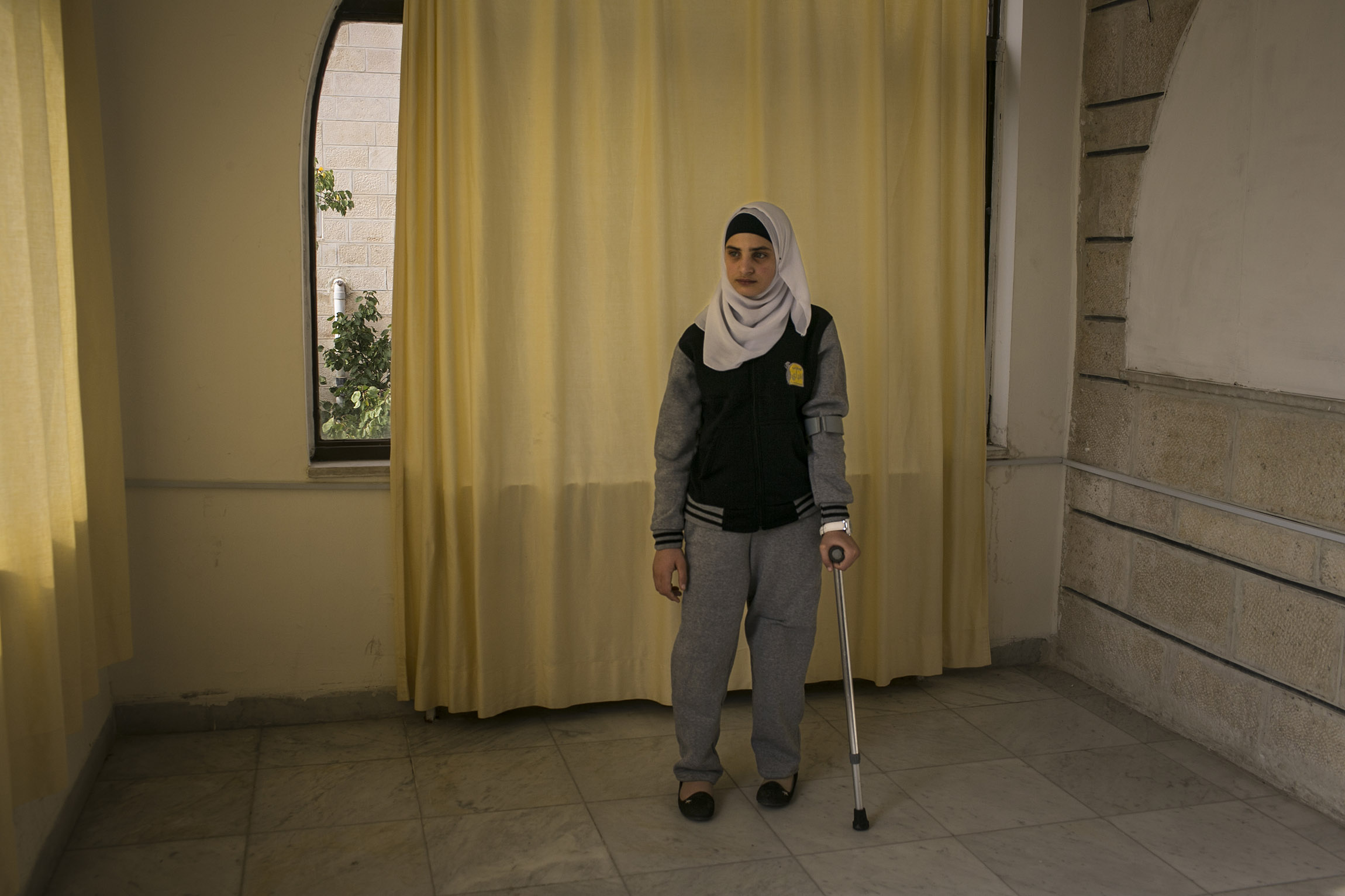Salaam arrived in Jordan by ambulance in 2013. Her family had become accustomed to living in besieged Daraa where the uprising had begun, and also the place they’d always called home. After a deceptively quiet few days, she ventured out with her little brother to buy a hat for her cousin’s birthday. The 13-year-old birthday girl went with them. As they walked, Salaam suddenly blacked out in a barrage of pain and confusion.
A barrel bomb, packed with nails and other shrapnel, had dropped from above. Repeatedly screaming for her brother, she pulled herself along the ground searching for him. She wept when she found him under a car, not sure if he was alive. Her cousin was torn to pieces and barely breathing. Salaam’s own leg was gone.
Syrian doctors sent them to Jordan, as the hospital was not medically equipped to save them. As soon as Salaam’s mother got word of what happened, she rushed to the local hospital, just missing the ambulance. She chased them all the way to the Syrian-Jordanian border, but the Jordanians refused to allow her to follow. While Salaam’s cousin lay dying and her young brother remained unconscious, she remembers being in a hyper-alert state. Amid the shock of watching her cousin die, she focused on her fear about what would happen to her brother. Would he live?
He did survive and has made a full recovery. Salaam is in treatment to learn how to walk again. Despite the war, she still wants to return to her mother and family. On the rare occasion the phones work, her mother calls and begs her to accept that she is safer in Jordan and must stay there.
Under international law, minors cannot return to a war zone on their own. So Salaam and her brother must remain at the rehabilitation center that takes in those who have fallen through the humanitarian cracks, providing much needed physiotherapy, and in many cases, an unofficial surrogate home and parent.
As Salaam shared her story, her attending nurse burst into tears. “She just started her period. It tears my heart, her first period, all her firsts. When she calls for her mother, she can’t be there for her.”
